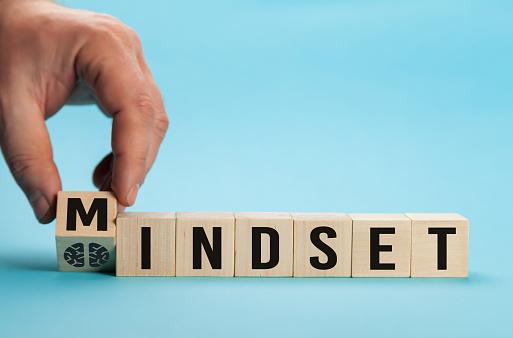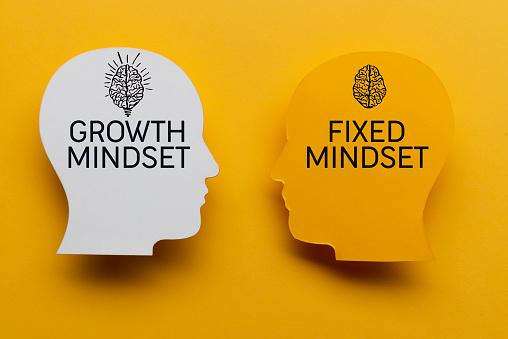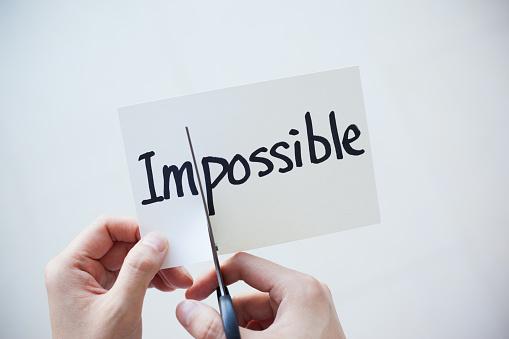Moving Into The Growth Mindset And How To Get Started

Have you ever heard the saying, “It is not about the destination, it is about the journey?” This statement rings particularly true when it comes to developing a growth mindset. A growth mindset is a way of thinking that focuses on personal growth, development, and improvement. It’s all about embracing challenges, embracing change, and continuously striving to become the best version of oneself.
Mindsets are a powerful force in our lives. They can change who we are and how we interact with the world. It is not just about what we think, but also how we think. That’s why in this article we shall delve into everything we need to know about mindsets (fixed and growth) and how they can improve our lives.
What is Really A Growth Mindset?

Many people don’t know what a “growth mindset” is. You’re not alone. The growth mindset is the belief that success is something you can grow into. It’s about believing that your abilities can be developed through hard work and dedication, not just as a result of being born talented or naturally smart.
The term “growing mindset” or “growth mindset” is one of the most buzzed-about terms among children, young adults and educators today. Although it has only been used in the last few years. It is a counter-culture idea that was coined by Stanford University professor Carol Dweck. The term refers to the belief that our minds can be stretched through effort, not through circumstance or inheritance.
The growth mindset is a cognitive style in which people seek to develop their skills, knowledge, and character through challenging experiences while being open to feedback. It is also a strategy associated with positive thinking, and it’s an important concept to be aware of as a result. A positive mindset helps you believe in yourself and your abilities and can help you learn new things and make progress with whatever it is that you’re doing.

The growth mindset is a powerful idea that can help you succeed in many areas of life. Cultivating a growth mindset is not an easy task. I’ve been a huge proponent of letting go of the fixed mindset (even though it can be so very hard), and I’ve found that one of my biggest hurdles has been giving up the idea that black women are destined to be less capable than other groups.
Gaining a growth mindset is the simplest way to become more successful. In fact, it’s an absolutely essential component of becoming a winner in your life and space. When you have a growth mindset, you start with the belief that you can improve yourself and your potential, and become even more than can be held within your imagination.
To help you understand what it entails, Here are a few tips to help you develop a growth mindset.
2 Major Characteristics Of A Growth Mindset
- In a growth mindset, you’re encouraged to think about yourself as someone who can change and improve with time, rather than someone whose abilities are fixed. This way of thinking is critical for success because it changes how you approach challenges and obstacles.
- When you have a growth mindset, you’re more likely to try new things and take risks — which means you’ll make mistakes along the way but keep learning from them as well. You’ll also be more willing to challenge yourself intellectually, rather than accept that your current knowledge is perfect and unchanging.
How to Develop A Growth Mindset
Cultivating a growth mindset is a continuous journey, but there are several simple strategies you can implement to get started including:
1. Understand Your Own Mindset
Start by reflecting on your own thoughts and beliefs about ability and intelligence. Acknowledge any fixed mindset tendencies you may have and work to shift your thinking towards a growth mindset perspective.
2. Look at the Track Record of Other People’s Success
Examine successful individuals and the journey they took to get there. This can help you understand that success is often the result of hard work, perseverance, and a growth mindset.
3. Be Open to Criticism
Instead of viewing criticism as an attack on your abilities, see it as an opportunity for growth and improvement. Listen to feedback and use it to continuously improve and grow.
4. Understand and Embrace the Process
Embrace the process of learning and growth, rather than just focusing on the end result. This can help you stay motivated and continue to work hard, even when faced with challenges or setbacks.

5. Learn Something New
Continuously seeking out new opportunities to learn and grow can help you maintain a growth mindset. This can include taking courses, attending workshops, or simply trying new things.
6. Be Realistic With Your Goals and Expectations
Set achievable and realistic goals for yourself, and understand that progress and success will not happen overnight. Celebrate small victories along the way, and use them to continue to build confidence and maintain a growth mindset.
7. Embrace Kindness
Cultivate an attitude of kindness and compassion towards yourself and others. This can help you let go of self-criticism and negative self-talk, and instead focus on growth and learning.
8. Recognize Your Mistakes
Mistakes are an important part of learning. They help you to avoid repeating them and to improve on your next attempt.
9. Use Setbacks as an Opportunity to Learn
Stages in learning are not linear and do not always move in one direction. When you make a mistake, take some time to analyze what went wrong, why it went wrong, how you could have avoided it, and how you can improve upon your next attempt.
10. Practice Gratitude
Gratitude is a positive emotion that focuses on the good things that happen to you rather than dwelling on the bad ones or looking for ways to avoid them altogether. It makes you more optimistic about the future, which helps with motivation and perseverance when faced with setbacks or failures in the present moment.
11. Embrace Challenges
One of the key characteristics of a growth mindset is the willingness to tackle challenges head-on. Rather than shying away from difficulties, embrace them as opportunities for growth. When you face a challenge, think about it as a chance to learn, grow, and become stronger.
12. Learn from Failures
Failure is a natural part of growth and development. When things don’t go as planned, don’t beat yourself up. Instead, use failures as opportunities to learn and grow. Ask yourself what you can do differently next time and what you can take away from the experience.
13. Be open to Feedback
Feedback is an invaluable tool in developing a growth mindset. Be open to constructive criticism and use it as a way to identify areas for improvement. Remember, feedback is not a reflection of your worth as a person, but rather an opportunity for growth and development.

14. Embrace Change
Change can be scary, but it is also a necessary part of growth. Embrace change with open arms and see it as a chance to grow, learn, and become better. Whether it’s a new job, a new relationship, or a new hobby, embrace change as an opportunity for growth.
15. Focus on Progress, not Perfection
It’s easy to get caught up in the pursuit of perfection, but this can be a hindrance to growth. Instead, focus on making progress and becoming better every day. Remember, progress is what truly matters in the journey of personal growth and development.
“The Power of Perspective: Understanding the Differences between Fixed and Growth Mindsets”

Have you ever heard someone say, “I’m just not a math person” or “I can’t play sports”? These statements reflect a fixed mindset, the belief that our abilities and characteristics are set in stone and cannot be changed. On the other hand, a growth mindset is a belief that our abilities and characteristics can be developed and improved through effort and learning.
So what exactly is the difference between a fixed and growth mindset, and why does it matter? In section, we’ll dive into the key differences between the two and explore how having a growth mindset can lead to greater success and happiness in life.
1. A growth mindset is a way of thinking that promotes learning and improvement, rather than fixed or innate abilities.
2. In a growth mindset, individuals are viewed as being in the process of developing their own unique strengths, not as fixed or pre-determined.
3. The growth mindset is the belief that we can improve our abilities, grow, and achieve goals by working hard. It’s not a magical ability that comes with age or natural talent. It’s something you can develop through deliberate practice, which means having a concrete plan for how to improve every day.
4. The growth mindset is also about believing that everyone has the potential to learn new things and reach their full potential.
5. People with fixed mindsets often shy away from challenges and fear failure, as they believe that their abilities are set in stone and cannot be improved. This can lead to a lack of growth and limited success, as they may not take risks or put in the effort necessary for growth and development.

6. Those with a growth mindset embrace challenges as opportunities for growth and learning. They see setbacks as temporary and believe that their abilities can be developed through hard work and effort. This mindset allows them to be more resilient in the face of challenges and more likely to persevere in the pursuit of their goals.
7. Feedback and criticism can be difficult for those with a fixed mindset to accept, as it may threaten their belief in their fixed abilities. Those with a growth mindset, on the other hand, view feedback and criticism as opportunities for growth and improvement. They are open to constructive criticism and use it to identify areas for growth.
8. The Growth mindset is so powerful as it is not only about believing in yourself (as opposed to a fixed mindset) but rather about seeing your abilities as something that can grow and change with effort and intentionality.
9. People who have a growth mindset believe that their intelligence, skills and talents can be developed and improved through dedication, hard work and learning from failure. They believe that intelligence is a malleable factor that can be changed. They see failures as just another opportunity to learn how to do things better next time around. They focus on their strengths, not weaknesses, and they see themselves as capable of improving in areas where they struggle.

10. These individuals tend to be the ones who are most likely to set goals for themselves, pursue them doggedly, and achieve them. The difference between them and those with fixed mindsets is that they know they have the power within themselves to change their lives for the better when they set their mind on achieving something.
11. The fixed mindset believes that intelligence comes naturally; this view leads people with a fixed mindset not only to avoid challenges but also to set themselves up for failure by expecting success without putting in any effort at all!
How To Cultivate The Growth Mindset In Others
Here’s how anyone can cultivate the growth mindset in others. To cultivate the growth mindset in others, you need to be able to identify the factors that contribute to it. Here are some ideas:
- Encourage them to look for ways they can grow, rather than focusing on external sources of praise or rewards.
- Ask them what they think they need most from you (and then try your best to provide it).

Conclusion
In conclusion, developing a growth mindset is all about embracing challenges, embracing change, and continuously striving to become the best version of yourself. Embrace the journey and focus on progress, not perfection, and you’ll find that the growth and development you experience will be well worth the effort. But when it comes down to it, all of this is really just an extension of what we’ve been learning since kindergarten: success is about working hard and being rewarded for doing so. The difference between those two ideas is really just one word: mindset.
Understanding the difference between a fixed and growth mindset can have a profound impact on your personal growth and success. By embracing a growth mindset and continually striving for self-improvement, you can become more resilient, persistent, and successful in life.
All images are sourced at unsplash.com
The one who spells Afrolady from the larynx of her pen. She’s a high spirited, cultured and ingenuous African child, whose writing drops an unimaginative creative splash on history and carves the indignation and memories of Black women.

